Shatrughan Sinha
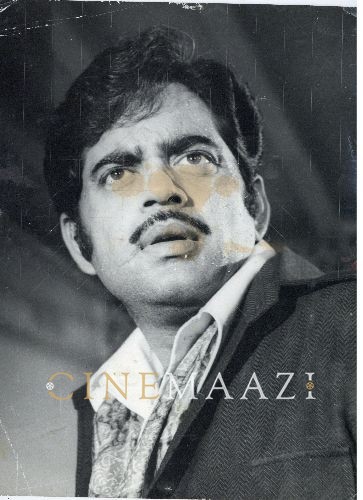
Subscribe to read full article
This section is for paid subscribers only. Our subscription is only $37/- for one full year.
You get unlimited access to all paid section and features on the website with this subscription.
Not ready for a full subscription?
You can access this article for $2 , and have it saved to your account for one year.
- Real Name: Shatrughan Prasad Sinha
- Born: 9 December, 1945 (Patna, Bihar)
- Primary Cinema: Hindi
- Parents: Bhubaneswari Prasad Sinha and Shyama Devi Sinha
- Spouse: Poonam Sinha
- Children: Sonakshi Sinha, Luv Sinha, Kush Sinha
Nicknamed Shotgun Sinha by a fanzine for his no-holds-barred, straight-talking, confident manner, Shatrughan Sinha is one of the Hindi screen’s prominent actors. He has left his distinctive mark onscreen in a series of films such as Mere Apne (1971), Bhai Ho To Aisa (1972), Rampur Ka Laxman (1972), Dost (1974), Kaalicharan (1976), Aadmi Sadak Ka (1977), Vishwanath (1978), Kaala Patthar (1979), Jaani Dushman (1979), Dostana (1980), Naseeb (1981), and Khudgarz (1987). Starting off in small roles, he moved to playing negative roles, his flamboyance and unruffled gimmicks earning him his reputation as a star villain. He then went on to make the successful switch to positive roles as a hero; not an easy move in the film industry which is quick to compartmentalise and stereotype. His quick wit and devil-may-care attitude has left a definite mark both onscreen and off it. He has also carved a long-standing career in politics.
Born in Patna, Bihar, on 9 December, 1945 to Bhubaneswari Prasad Sinha and Shyama Devi Sinha, he was the youngest of four brothers, namely Ram, Lakshman, Bharat and himself. Graduating from Patna Science College with a Bachelor of Science degree, his interest in acting saw him earn a Diploma in Acting from the Film and Television Institute of India Pune. Moving to Bombay, to find work in films, he started off with a cameo role in Mohan Sehgal's Saajan (1969) where he ended up unintentionally displeasing the film’s heroine, Asha Parekh. However, he did also gain friends such as Sanjeev Kumar and Mumtaz who better understood his personality, and who also supported his talent.
He featured in the 1970 film Khilona, signed on the recommendation of Mumtaz. The film was a jubilee hit, bringing Sinha the required recognition. He later went on to feature in parallel roles in off-beat films such as Chetna (1970) and Do Raha (1971). It was with Gulzar's Mere Apne (1971) starring Meena Kumari that stardom arrived for Sinha. He made a stunning impact as the street don Chhainu, who is at daggers drawn with Shyam played by Vinod Khanna. His raw and powerful performance was enhanced by his ebullient voice, and dialogue delivery which also won him a compliment from Kumari on his knack of delivering dialogues without pausing at the predictable moments. Conferred with tags such as ‘Wonder Boy’ and ‘Wonder Villain’ post this film, his career was buoyed on by impactful roles in films such as Rampur Ka Lakshman, Bhai Ho To Aisa and Heera (1973).
Such was Sinha’s growing fondness among the masses that the distributors of Bhai Ho To Aisa compelled Manmohan Desai to include a scene in the film which showed his character being reformed. Even in a villainous role, the public simply would not swallow the prospect of him being all-bad. He brought certain quirkiness to his performances such as stopping in the middle of an action sequence to check if his watch was working. Playing the scoundrel in Kundan (1972), the rogue in Blackmail (1973) or even the parallel hero in Do Yaar (1972), he became celebrated as a star villain, on par with the hero. Not surprisingly, he also won hearts with his performance as the cheerful prankster and friend in Dost (1974), becoming an instant hit with audiences. He would later maintain that his character in the film came closest to what he was actually like off-screen—naughty and talkative but with a childlike heart.
With offers for leading roles coming his way, he shifted to essaying hero opposite newcomers such as Poonam (credited as Komal in her early films, who later became his wife) in Sabak (1973), as well as established heroines like Jaya Bhaduri in Gai Aur Gauri (1973) and Hema Malini in Do Thug (1975). It was Subhash Ghai's thriller, Kalicharan (1976) that ushered major stardom his way. The film had him essay a double role in a story about the transition of a man from a ruthless fugitive, to a conscientious law-abiding citizen and a hero. The film was a watershed moment in his career, as he had himself made a significant transition from villain to hero.
He went on to work with some of the industry’s biggest names at the time. Jwalamukhi (1980) saw him being directed by Prakash Mehra, while Manmohan Desai directed him in Naseeb (1981), Ramesh Sippy in Shaan (1980), Raj Khosla in Dostana (1980) and Yash Chopra in Kaala Patthar (1979). Seen as a fitting rejoinder to the superstar of the day—Amitabh Bachchan—both actors evidently brought out the best in each other onscreen especially when they were pitted against each other as they were in films like Dostana and Kaala Patthar. However, they did not sign on films together after Naseeb (1981).
The early 1980s saw Sinha's career go through a slump. This was despite the fact that his main competition—Vinod Khanna had quit the industry, and he was being paired opposite successful leading ladies such as Hema Malini in Sharara (1984), Smita Patil in Mera Dost Mera Dushman (1984) and his favourite, Reena Roy in Do Ustaad (1982). His performances seemed to be lacking in the angst seen in his earlier appearances. A few years later, he got his groove back, so to speak, with films such as Ilzaam (1986) and Aag Hi Aag (1987). The success of Khudgarz (1987) established his standing all over again. The film was further proof that he was most impactful in roles that were a reflection of his own personality. In more recent times, he featured in films such as Aan: Men At Work (2004), Rakta Charitra (2010), and Yamla Pagla Deewana Phir Se (2018).
Among the awards he has won are the Bengal Film Journalists Association Awards for Best Supporting Actor for Tanhai (1972), the Stardust Award for Pride of the Film Industry, the Zee Cine Award for Lifetime Achievement, and the IIFA Award for Outstanding Contribution to Indian Cinema.
Sinha has also enjoyed a successful career in politics. He was a member of the Lok Sabha (2009–2014, 2014–2019) from Patna Sahib, and the Rajya Sabha (1996–2002, 2002–2008). Union Cabinet Minister of Health and Family Welfare and Shipping in the Atal Bihari Vajpayee government, he was also a member of the standing committee on transport, tourism and culture and member of consultative committee in the Ministry of External Affairs and Overseas Indian Affairs from 2014 to 2019.
His authorised biography, ‘Anything But Khamosh’ was released in 2016. With his trademark bluntness he revealed that contesting elections against Rajesh Khanna from Delhi in 1991 was his biggest regret and he had apologised to him as well. He also addressed his alleged rift with Amitabh Bachchan, revealing, “People say that Amitabh and I made a dynamic pair on screen but if he did not wish to work with me, if he felt that in Naseeb, Shaan, Dostana or Kaala Patthar, Shatrughan Sinha bhari pad gaya (having Sinha around worked against him), it didn’t affect me. There were so many films that I dropped out of and returned the signing amount…so many films that I gave up without a backward glance because of Amitabh Bachchan.”
Married to former Miss India Poonam Sinha (née Chandiramani), he is father to twins Luv and Kush, and daughter Sonakshi Sinha.
-
Filmography (199)
SortRole
-
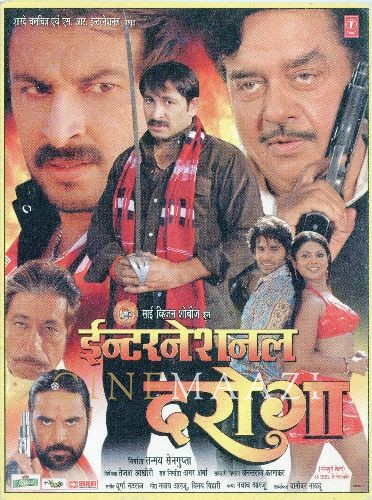
International Daroga 2010
-
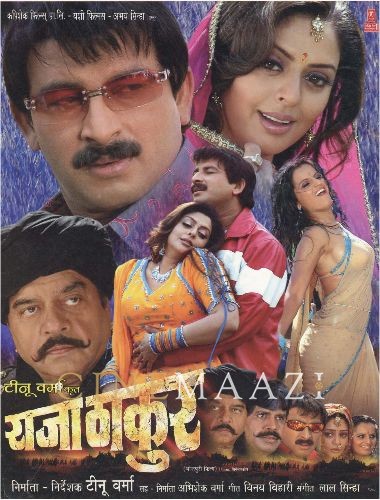
Raja Thakur 2006
-
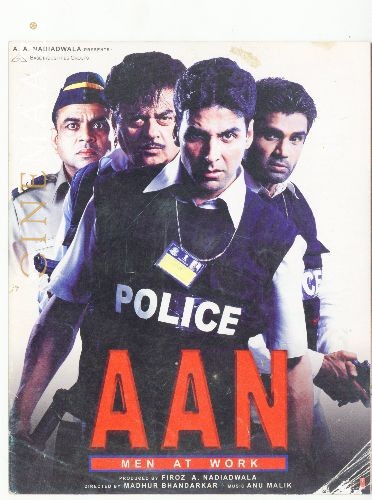
Aan : Man At Work 2004
-
Papa - The Great 2000
-
Zulm-o-Sitam 1998
-
Agnee Prem 1996
-
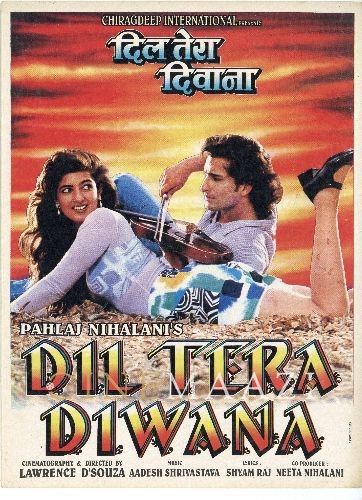
Dil Tera Diwana 1996
-
Jagannath 1996
-
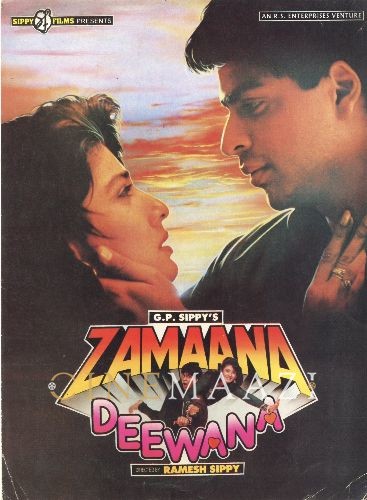
Zamaana Dewana 1995
-
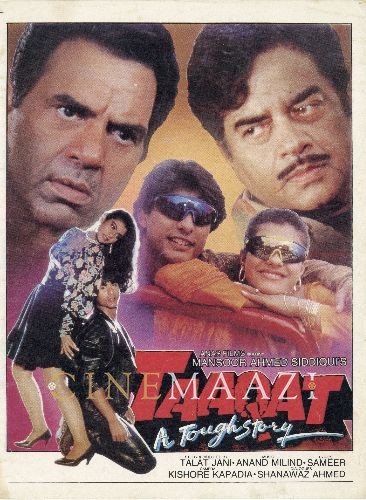
Taaqat 1995
-






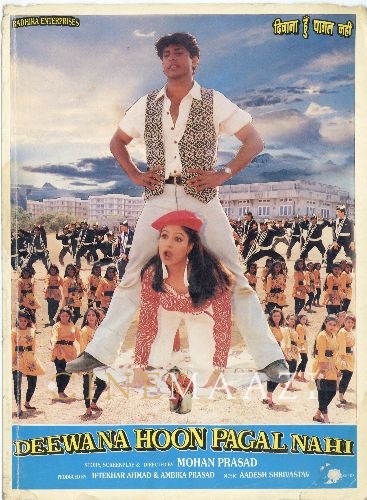



.jpg)



